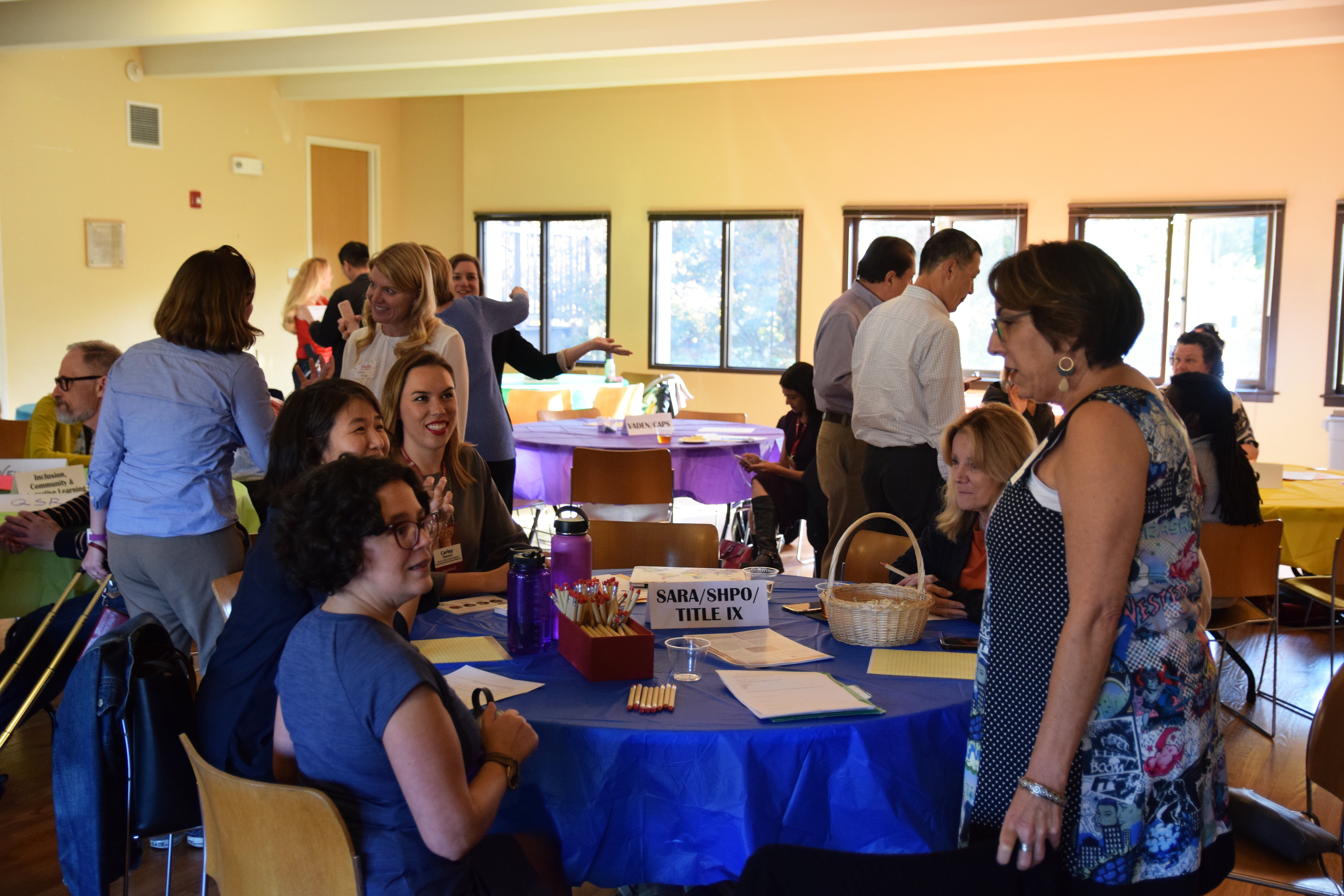High rates of reported sexual assault in the recent Association of American Universities (AAU) campus climate survey has sparked campus concern. In attempts to make headway at addressing sexual violence on campus, students and University administrators gathered at the Asian-American Activities Center on Wednesday evening to discuss potential steps forward. The survey, the results of which were released on Oct. 15, found that 33.1% of undergraduate women and 31.5% of non-cisgendered students experienced instances of nonconsensual sexual contact since entering Stanford.
Lauren Schoenthaler, Senior Associate Vice Provost for Institutional Equity and Access, told The Daily that the survey is an indicator of the campus’ current state and future progress.
“I hope that together we are building a community of culture, care and respect,” Schoenthaler said.
An external review committee will be coming to campus in the winter to analyze systemic changes the University can make, according to Schoenthaler.
In a letter to the community on Oct. 15, Provost Persis Drell wrote, “We continue to see the prevalence of sexual assault and sexual harassment on our campus, and there is clear evidence that some groups of students are particularly affected at higher rates than others.”
Ombudsperson Brenda Berlin told The Daily, “I’m deeply troubled, as I think all of us are, by the survey and its results and, in particular, the lack of trust and the resources that are here.”
Associated Students of Stanford University (ASSU) Senator Sarah Saboorian ’22, who also attended the forum, proposed the University mandate consent training in Row houses conducted by an external program as opposed to a Residential Assistant.
Saboorian urged others to “be an ally.” She said, “I’d like to see more men, more straight men, in this room, advocating for these policies as well.”
Stanford University Department of Public Safety (SUDPS) Detective Stephanie Taylor said she hopes to show students how SUDPS can be a resource.
“Our uniform isn’t a barrier, but an identifier,” Taylor told The Daily. SUDPS emphasizes a victim-centered approach where “the victim’s wishes, safety and well-being take priority in all matters and procedures,” according to recently drafted SUDPS protocol for Santa Clara County.
Although Sowmya Patapati ’22 is grateful for the University’s transparency in putting out the survey, she also expressed frustration regarding the lack of student activism and openness.
“I feel like people underestimate the importance of these events and how much it can significantly change actual policies,” Patapati said.
In a similar vein, Miriam Haart ’22 added that “as students, I really think we need to stand up, we need to show up. Administration doesn’t know that we actually want change and we do.”
Schoenthaler echoed that she hopes that the information from the climate survey will cause others to be more aware of these issues on campus in order to foster change.
“We have a serious health crisis on our campus and there are things that we need to do as a community to recognize that,” Schoenthaler said.
Contact Leily Rezvani at lrezvani ‘at’ stanford.edu
